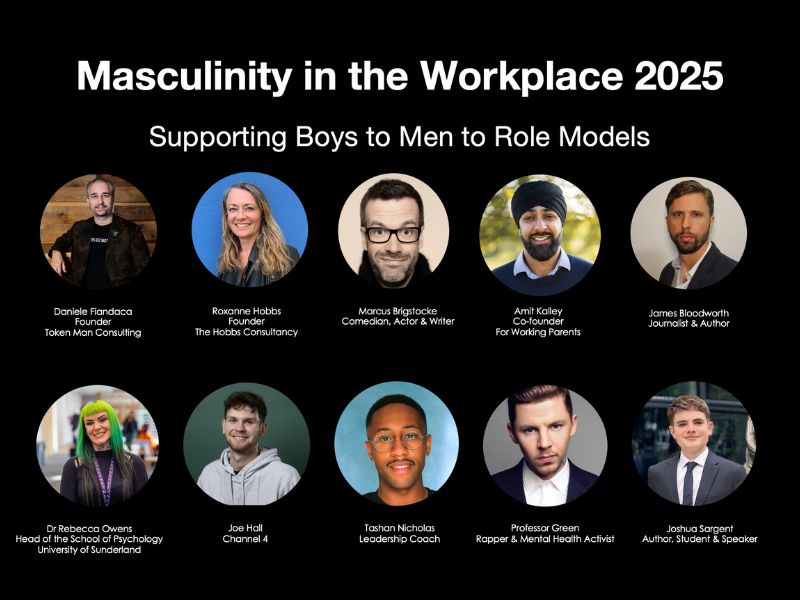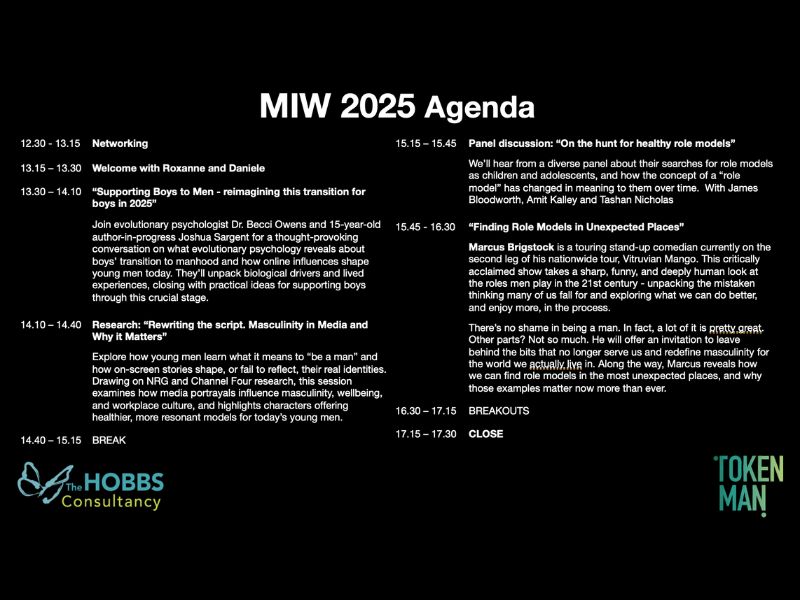
By Sarah Bradley, Partner, Page Executive
Research from McKinsey has shown comprehensively that diverse and inclusive organisations are more innovative and achieve better commercial returns than their less diverse counterparts.
Yet women in leadership positions and those on the path to leadership continue to experience a range of barriers which men do not, while their accomplishments and contributions routinely receive less attention. What can organisations do to deconstruct these barriers, and how can women position themselves to overcome them?
I recently met with a group of incredibly inspirational and accomplished female leaders at Page Executive’s annual Women in Leadership event, where women in senior positions come together to network and discuss shared challenges, advice, and guidance. This year, our panellists included the brilliant Amanda Lennon, Employment Lawyer and HR Director at Spencer West, Deborah Cadman OBE, Chief Executive of Birmingham City Council, and Jo Kenrick, Non-Executive Director for Coventry Building Society, Sirius Real Estate and others.
The insights they shared are invaluable for all women, from younger generations who are just entering the workforce, to those already in leadership roles. Here, I share some of the key advice they shared for other women seeking a pathway to leadership.
For all the resources that organisations have devoted to diversity and inclusion initiatives in recent years, women still face many barriers, with their work and contributions often unrecognised. Lots have experienced being spoken over by male colleagues, overlooked for opportunities, and seen sexist language and behaviour go unchallenged.
According to Jo Kenrick, being able to manifest confidence is critical to ensuring you are seen and heard in the workplace. She has several suggestions for enhancing your physical presence in these environments, including: “Think carefully about how you come across. Look people in the eye and shake hands firmly. And when it comes to making an impact in meetings, I have found it helpful to practice being able to draw together the threads of a conversation to develop clear actions that have a real impact. As well as this, practice interrupting gracefully. People won’t always stop talking to give you room to interject, so you need to know how to do so anyway.”
It is also common for women in leadership to experience imposter syndrome and self-doubt, often as a result of being treated as a less significant team member or leader. Amanda Lennon reiterates the importance of self-confidence in the face of this: “You have to believe in yourself and that you are in that position for a reason – you have the experience, and you should let that come across when you speak. This is something that takes practice, but over time I have learned to accept it when people disagree with me and deal with people who don’t work in the ways that I’d like to work.”
Against a backdrop of inequality, it is invaluable for women to know how to assert themselves and make their voices heard. Here are a few techniques our panellists have used over the course of their careers to ‘own their seat at the table’.
Amanda was the only woman on a board of directors for ten years, and during this time she learned to avoid finger-pointing and aggressiveness, instead making strategic use of silence and timing: “By waiting for everyone to finish their arguments and discussions before making your own contribution, you can often come across as more confident and assertive.”
Jo, who also has experience operating as a leader in male-dominated environments, makes another important point: “As a woman, remember that your difference is your strength. You will be able to see things from a different angle and unlock the perspective of a wider consumer audience.”
In order for the workplace to become a truly equal environment for women, employers need to take action and men need to provide the right support. When asked how to encourage and elevate women in the workplace, Deborah strongly emphasises the importance of coaching and support networks, commenting: “Mentoring is an invaluable tool to support women in the workplace by opening doors and instilling confidence. It’s very important for strong, confident successful women to present themselves as role models and be prepared to lean down and give a hand to those coming up behind them.”
She also mentions that issues of gender inequality in the workplace intersect with those of racial inequality, noting that there is not a single woman of colour serving as the CEO of a FTSE 100 company. She said: “To attract and retain women of colour at the senior level, it’s important to be intentional, setting targets, considering unconscious bias, rethinking the way we headhunt, investing more in internal recruiting, and implementing blind recruitment as well. At the same time, more men need to be vocal in challenging sexist behaviour and language in the workplace.”
Amanda and Jo also highlight the importance of flexibility and the concept of ‘equity’ which focuses on levelling the playing field and giving different individuals the right tools to access opportunity.
Amanda comments: “As a woman, I don’t want to be treated differently to my male colleagues. Instead, there needs to be an inclusive environment for everyone. For instance, I am a working parent, so I need a degree of flexibility so that I can both do my job and be there for my children. It’s about understanding the needs of all individuals.”
In the end, real progress comes down to taking concrete and meaningful action. When asked how organisations could make sure that the transition to hybrid working doesn’t disadvantage women with caring responsibilities, Jo notes the importance of truly listening to your people: “If you’re not listening with the intention of acting on what you hear, then you’re just waiting for the other person to stop talking.”
I asked Amanda, Deborah, and Jo what advice they would offer to aspiring female leaders – here’s a key piece of guidance from each.
“Learn from experience and use your experience in future situations to keep making progress. Work out what sort of leader you want to be. Think about who your audience is when you are speaking to have more impact, but also be true to yourself.” – Amanda Lennon, Employment Lawyer, and HR Director, Spencer West
“Be authentic, brave, and willing to make hard decisions, even when you’re unsure. Don’t be afraid to be a bit troublesome. Call out things that you think are wrong – people will respect you for it. Find mentors and people who will support you and offer your skills to others too. And never feel that you are above being challenged.” – Deborah Cadman OBE, Chief Executive of Birmingham City Council
“Keep your head up – in six months’ time, you probably won’t even remember whatever particular challenges you are facing right now. As a leader, developing that resilience will enable people to take confidence from you as well.”- Jo Kenrick, Portfolio Non-Executive Director for Coventry Building Society, Sirius Real Estate and others
November
19nov10:0013:00MenoMinds – Free Training for Women in Business | Menospace & Minds That Work
19/11/2025 10:00 - 13:00(GMT+00:00)
Introducing MenoMinds – Free Training for Women in Business We’re excited to share MenoMinds, a fully funded programme created by Menospace and
We’re excited to share MenoMinds, a fully funded programme created by Menospace and Minds That Work, supporting women in business, freelancing, or entrepreneurship through the emotional and mental challenges of menopause.
Wednesday 19th November | 10:00am – 1:00pm (UK)
Live on Zoom | 💷 Free (funded by NEBOSH’s Social Purpose Programme)
Menopause can affect confidence, focus and wellbeing — MenoMinds helps you take back control with practical tools and a supportive community.
You’ll explore the CARE Framework:
Includes a digital workbook and invitation to monthly community groups on sleep, nutrition and stress management.
Freelancers, entrepreneurs, and women in small or micro-businesses (under 50 employees).
Facilitators: Haley White (Menospace) and Victoria Brookbank (Minds That Work)
19nov12:3018:00Masculinity in the Workplace - 2025 (Hybrid)
19/11/2025 12:30 - 18:00(GMT+00:00)
Conway Hall
25 Red Lion Square, London, WC1R 4RL
Brought to you by Token Man and The Hobbs Consultancy. Welcome to Masculinity in the Workplace, designed specifically to

Welcome to Masculinity in the Workplace, designed specifically to engage men with creating inclusive cultures. Marking International Men’s Day, the objective of our event is to give men both the reason and the skills to lean into the conversation, while also providing women and non-binary people with the confidence to engage more men in culture change. Because ultimately we can only make real change by working together.
Date: Weds Nov 19 2025
Time: 12.30pm to 6pm
Location: Conway Hall, 25 Red Lion Square, London, WC1R 4RL
Our speakers will share their insights and experiences, shedding light on the evolving dynamics of masculinity, leadership and culturein diverse work environments. You’ll have the chance to ask questions, participate in interactive sessions, and network with like-minded professionals.
The theme for this year is ‘Supporting Boys to Men to Role Models’. This year’s event will seek to understand the concerns and barriers that are in the way for boys and men, particularly looking at key inflection points in their lives. It will equip parents, leaders, friends and persons of significance in the lives of young men with the tools for self-reflection, effective role modelling and courageous conversations..
It will suggest that status-seeking and risk-taking behaviours are innate as boys become men, look at how this shows up for boys in 2025 and question what support could help these boys have a more positive initiation in to adulthood so that they are ready for the workplace. We know that there is a reverse gender pay gap and that schools aren’t preparing students in the same way to enter the professional workplace – what needs to be done?
We will look at the behaviours that are role modelled by men once they are in the workplace. Is it healthy for us to look for male role models, or is a search for positive behaviours more effective? What can we learn from how men are represented on screen and in the media? And what can we do to support our men once they are in the workplace?
This site is for the in-person experience. Otherwise you can register for the online version here.
FYI – lunch will not be provided

This event is for anyone passionate about creating more inclusive, equitable, diverse and human workplaces, and we welcome attendees of all identities and expressions.
Historically, our audience has included around 60% men and 40% women or non-binary people, with a wide range of roles and lived experiences.
This year, we’re especially keen to welcome CEOs, HRDs, CMOs, Inclusion & Diversity leaders, People & Culture teams, and anyone working to engage men more effectively in their organisations. Whether you’re a parent, people manager, or someone invested in systemic culture change, this event is for you.
By attending, you’ll be joining a growing community of people committed to reshaping masculinity, unlocking allyship, and building workplace cultures where everyone can thrive – from boys and young men to senior leaders and everyone in between.
Receive a 50% discount on an in person and virtual ticket below.
20novAll DayDigital Transformation Conference
20/11/2025 All Day(GMT+00:00)
Mercure London Earls Court
London
Ready to transform your business in the digital age? The upcoming Digital Transformation Conference UK promises an exceptional opportunity for leaders who want to accelerate change, embrace innovation and shape
Explore how industry leaders are redefining digital and business transformation. Learn proven strategies, gain fresh perspectives, and connect with peers shaping the future of technology and enterprise. Tactical & practical content to drive your transformation efforts.
Throughout the day, delegates can look forward to a diverse programme of content exploring every aspect of digital transformation, business change, and innovation. Hear best practices, lessons learned, and insights into real-world challenges from leaders driving progress across digital, technology and IT.
If you’re a C-suite leader, head of innovation, transformation or IT, this is the place to be. Whether you’re just starting your journey or looking to scale up, you’ll leave with fresh ideas, new contacts and a renewed sense of direction.
